PSU TIER LIST 2023 (Jan Updated) – #1 Ultimate Guide
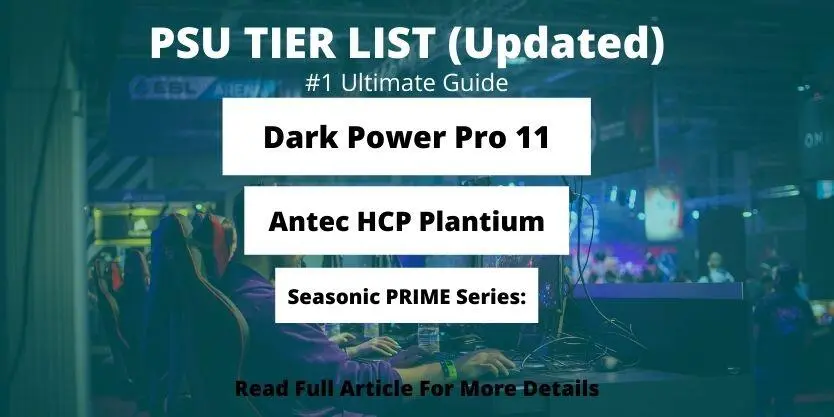
One of the most important components of a PC is a Power Supply Unit (PSU). It is responsible for providing electric power to all the internal components of a computer and ensuring that the PC is working at a safe voltage.
Despite its significant function in the running of a PC, it is the most overlooked feature when building a PC. Many problems with a PC are associated with the use of an incompatible PSU resulting in overheating, overload, and other problems in the PC.
Buying a PSU may seem like a very mild part of building a PC. However, it is not very time consuming and all you need to do is do some of your research and write down all the brands that offer a reliable product. You will easily find countless PSU tier lists all through the internet but the real job is to look for one that best matches the requirement of your PC.
Before you go on to buying a power supply unit, you should read through some guides to understand what do you need to look for in the market and what is a waste of money for you.
Power Supply Units and their purpose:
Power supply units (PSU) are electronic devices that supply electric power to an electric load. A PSU’s main function is to convert AC power supply to DC power supply to run the internal components in a PC.
This is because all the internal components like motherboard, central processing unit (CPU), disk drives etcetera operate only on DC power. So PSUs are needed to do this work.
PSUs are known as power converters as well because they convert AC power to DC power. They can be built-in or may be installed by the user on the PC. Apart from power conversion, these electronic devices also can regulate electric current to the device and ensure that all the components are running on a safe current. Similarly, it also limits voltage supply to the PC and prevents voltage surges and the damage caused by them to the PC.
PSUs are also responsible for power factor correction. The power factor correction feature allows you to limit your electricity bill by maintaining the power supplied to the PC. As a result, there are fewer power losses.
These are also useful for maximizing the capacity of current and voltage that flows in the internal components of a PC. Moreover, PSUs can also store energy to provide in times of less power availability and prevent interruptions in the circuit.
Check What is Ram? How Much RAM do I need?
PSU converts power supplied by input sources such as power grids, electrical outlets, energy storage devices etcetera. On a PC, the input source is always wall sockets that are supplying AC power that needs to be converted to DC power it goes into the internal components so that they can run properly.
PSUs do not always need wires to power their loads. Although any PSUs still use cables to supply the converted power to the load, developments have been made. Modern-day PSUs do not have to connect with wires. Instead, they can provide power to their load without having to connect with any wires. This makes a PSU more feasible than the ones with wires that might tangle with each other and cause problems.
Modern Power Supply Units:
The transformers were the first type of PSUs to be ever invented. The PSUs today are a result of many developments that were made in the first PSUs launched back in the 1900s. Modern power supply units conform to ATX specification that includes all the information about form factors and voltage tolerances.
These ATX power supplies are connected to the main supply and provide 5-volt standby power which is utilized in standby functions of a PC. The ATX power supply is also responsible to send signals to the motherboard when the DC voltage is right and the computer can boot without any problem.
Buying a PSU: All you need to know:
Before you begin to research brand PSUs, there are things that you need to know about a PSU and decide which fits your PC requirements the best. First, you need to know what features need to be considered in a PSU and then you should understand your own PC’s needs. Your PSU has everything to do with your PC. To decide which PSU to buy, you need to know your PC meaning its requirements that can be fulfilled by a PSU.
Remember if you haste this process, there are high chances that you will make a mistake and end up buying a PSU that neither matches your PC’s requirements nor does it work with its full efficiency on your PC. Below is a brief explanation of the things you need to keep in mind when you go shopping for a PSU.
Check Mouse Bungees
Power requirement of your PC
The first step is, of course, knowing the amount of power your PC requires. There are many online power calculators available that measure individual powers as well as total power required by the PC and its components.
This will determine the PSU that will work best to convert AC power from the input source to the DC power going into the PC. Doing this will save your money as you will not end up buying just anything that does not even work with your PC.
Upgrades in a PC over time:
When buying a PSU for any PC, remember that new upgrades are always coming. When you buy a PC, you use it for a year and during these years, there are many changes that you make in it. A lot of times, you get your internal components changed.
So, you should always think about the changes that you can make in your PC and calculate how it would change the power requirement of your PC. Your PSU should be able to provide the right output and the right efficiency in case of any changes in the PC and not just be compatible with a single version of the computer.
The efficiency your PC needs:
Efficiency refers to the ability of a PSU to provide power output for particular power input. As the power input is always a wall socket, it’s power rating should be divided by the PSU’s power rating to determine how efficiently it will work on your computer. It is crucial to buy a PSU that is fully efficient for your PC to reduce power losses and overheating of PC components.
Efficiency is not exactly a PC’s feature. It is only the measure of how efficiently your PSU needs to convert AC power to DC power to provide the power that can be used by the PC.
The efficiency that your PSU needs to have depends on the power supplied by wall sockets as it will determine what efficiency will provide the right power to the computer and its components.
Check How to identify HDMI 2.0 Cable?
What is the role of efficiency in a PSU?
PSUs usually have efficiencies above 50%. While the most common PSUs have an efficiency between 75% and 77%, some PSUs also have an efficiency that goes up to 82%. As it is a well-known fact that no system or device can be 100% efficient, 82% is a quite high number and can prevent a major loss of power.
Efficiency plays a vital role in PCs that are operating on low power as they prevent power loss. Less power loss means that the PC will heat less. As a result, the PC will not suffer from much wear and tear. This promotes a long life of the PC and its internal components as well.
What do power supply units with 80 PLUS reading indicate?
An 80 PLUS reading on the PSU indicates that the PSU had efficiency over 80% and that it works with its full efficiency at 20%, 50%, and 100% loads. Desktop PSUs with 80 PLUS rating can be further categorized into levels such as gold, silver, platinum, titanium, and bronze.
Among these six levels including 80 PLUS itself, 80 PLUS bronze rating PSU is the least efficient, and 80 PLUS titanium is the most efficient PSU. Silver and gold 80 PLUS PSUs are commonly used in consumer PC builds whereas platinum and titanium are used in PSUs with a high capacity.
Minor advantages of buying the right PSU:
- If you successfully made the right choice of PSU for your PC, you are good to go for many years and upgrades to come.
- It is a good idea to buy a PSU with a slightly higher power rating than required by your PC to be always sure that it will comply with several upgrades. This will allow you to use your PSU for a long time and also increase the life of your PC by preventing major power loss and overheating of components.
- You can even sell your PSU if you are buying a new PC that will not work with the PSU of your old PC. This means that you can still profit from it even though it is no longer useful for your PC.
- If you can sell it for a good price, then it can even save you up the money for a new PSU and you will not have to spend extra money on it.
How to keep a PSU cool:
All PSUs waste some power in the form of heat energy because no PSU can be 100% efficient. Some power is always lost and the heat generated due to power loss heats the PSU. Overheating of a PSU can cause many hazardous problems which is why it is significant to regulate its temperature by cooling at all times.
Some power supplies can passively cool themselves but mostly need a fan or other cooling system to regulate their temperature. Most of these power supplies come with a fan that provides cool air to the power supply which flows out of the grille at the back leaving the power supply cool.
A good cooling system does not only maintain the temperature of the power supply and prevent overheating but also minimizes the noise from PSU by making adjustments along with providing an adequate amount of air to cool the PSU.
Check What is Good Idle GPU temperature?
Active PSU and Passive PSU:
As mentioned above, one of the most important features of a PSU is it’s cooling method. PSUs can have an active, semi-passive, or passive cooling system. It entirely depends on the wattage which one you should go for. The three types of cooling systems in PSUs are described below.
Active cooling:
PSUs that use an active cooling system come with a fan that starts spinning when a computer is turned on. The fan’s rotational speed depends on the load on the PSU and the temperature in the PSU.
The fan allows a good exchange of air between the PSU and the environment making sure that none of the components remain overheated. However, as the fan is always spinning, you will have to put up with the constant noise that may increase or decrease depending on the rotation of the fan.
Semi-passive cooling:
As the name suggests, semi-passive cooling refers to cooling that is similar to active cooling. It also involves the spinning of a fan at variable speed but at low temperatures, the fan switches off so that the PSU does not lose any more temperature and gains heat. These types of cooling systems automatically switch to active cooling when required by increasing the rotational speed of the fan when the PSU is overheating.
Passively cooled power supply:
Unlike active cooling, it involves the usage of heatsinks for cooling. Heatsinks are devices responsible for absorbing excess heat from components. These absorb all the heat that is emitted due to power loss.
This method of cooling might be faster and more efficient but its biggest con is that it is limited wattage capabilities which is not the case for active and semi-passive cooling systems. Also, noise may be less in the passive cooling system than that inactive and semi-active systems but it is not completely absent.
There will still be some noise. Moreover, passive cooling systems are more expensive than active and semi-passive cooling systems and need to be more efficient. These also require cases that ensure good airflow.
PSU Tier list 2020 ( Updated November ):
There are so many options in the market for a good PSU that you may have a hard time deciding on one. While some brands offer an excellent quality PSU but are pricey, others may be cheap but compromise on quality.
Sometimes a PSU has a good efficiency but lacks other features such as a good cooling system or is too pricey for you. However, the best idea is to go for a PSU that may cost a bit high but its efficiency and wattage match the requirement of your PC.
Below is a PSU tier list that consists of several brand PSUs. You can google any that you may find interesting to learn more about its features. Do not forget to read reviews before finalizing the decision about your purchase.
You should have an idea about every option in the market so that you can opt for an alternative if the one that you decided is not available. They are divided into six tiers based on their efficiency and performance. Each tier consists of PSU with different levels such as gold, platinum etcetera.
S TIER
This tier mainly consists of PSUs with platinum and titanium meaning these PSUs are for devices with high capacity.
| PSU | 80 Plus Rating | Power |
| Be Quiet! Dark Power Pro 11 | Titanium | 1200 WATTS |
| Antec HCP Plantium | Platinum | 750, 850, 1000, and 1300 WATTS |
| Seasonic PRIME series | Platinum and Titanium | 550, 650, 750, 850, 1000, and 1300 WATTS |
| Corsair AXi Series | Platinum and Titanium | 1200, 1500, 1600 Watts |
TIER 1
| PSU | 80 Plus Rating | Power |
| Be Quiet! Dark Power Pro 11 | Gold | 450, 550, 750, 850, 1000 WATTS |
| Mistel MX650 fanless | Platinum | 650 WATTS |
| Corsair Vengeance | Silver | 650, 750 WATTS |
| Super flower Leadex | Gold, platinum, and titanium | 550, 650, 750, 850, 1000, 1300 WATTS |
| Thermaltake Toughpower Grand RGB Series | Platinum | 1200 WATTS |
| LEPA G1600 | Gold | 1600 WATTS |
TIER 2
| PSU | 80 Plus Rating | Power |
| FSP Hydro G | Gold | 850 WATTS |
| Seasonic G series | Gold | 360, 450, 550, 650, and 750 WATTS |
| Kolink Continuum | Platinum | 1050, 1200, 1500 WATTS |
| Corsair CX | Bronze | 430, 450, 500, 550, 600, 650, and 750 WATTS |
| Fractal Design Tesla R2 | Gold | 650 and 1000 WATTS |
| Antec EDGE | Gold | 550, 650, and 750 WATTS |
| Rosewill fortress | Platinum | 450, 550, 650, and 750 WATTS |
| Rosewill Capstone | Gold | 450, 550, 650, 750, 850, 1000, and 1200 WATTS |
| Rosewill Quark | Platinum | 550, 650, 750, 850, 1000, and 1200 WATTS |
TIER 3
| PSU | 80 Plus Rating | Power |
| Super flower platinum king | Platinum | 450 and 550 WATTS |
| Zalman EBT | Gold | 650, 750, 850, 1000, and 1200 WATTS |
| Aurum pro | Gold | 850, 1000, 1200, and WATTS |
| Rosewill photon | Gold | 550, 650, 750, 850, 1050, 1200, and 1250 Watts |
| XFX pro series | Bronze | 550 and 650 WATTS |
| EVGA BQ | Bronze | 750 and 850 WATTS |
TIER 4
| PSU | 80 Plus Rating | Power |
| Cougar LX | Bronze | 500 and 600 WATTS |
| Silverstone Strider plus | Silver | 600, 750, 850, 1000, and 1500 WATTS |
| Rosewill Capstone G | Gold | 650, 750, 850, 1000, and 1200 WATTS |
| Thermaltake Paris | Gold | 650 WATTS |
| Inwin classic series | Bronze | 500 and 600 WATTS |
| Cooler Master GM series | Bronze | 450, 500, 650, and 750 WATTS |
| Corsair gaming series | Bronze | 600, 700, and 800 WATTS |
TIER 5
| PSU | 80 Plus Rating | Power |
| Silverstone SFX | Bronze | 300 and 450 WATTS |
| Rosewill Glacier | Bronze | 500, 600, 700, 850, 1200 Watts |
| EVGA B1 | Bronze | 450, 500, 600, and 700 WATTS |
TIER 6
| PSU | 80 Plus Rating | Power |
| EVGA W1 | White | 430, 500, and 600 WATTS |
| Silverstone essential series | Bronze, silver, and gold | 400, 450, 500, 550, 600, 650, 700, and 750 WATTS |
| Rosewill hive | Bronze | 550, 650, 750, 850, and 1000 WATTS |
| Thermaltake smart series | Bronze | 750, 1000, and 1200 WATTS |
| Antec VP series | White | 450, 550, and 630 WATTS |
| FSP Raider series | Silver | 50, 550, 650, and 750 WATTS |
TIER 7
| PSU | 80 Plus Rating | Power |
| FSP Hexa | White | 500, 600, and 700 WATTS |
| Cooler Master Elite Series | Non-Rated, White | 300, 350, 400, 450, 500, 550, 600 Watts |
| Thermaltake TR2 series | White, bronze, and gold | 350, 430, 450, 500, 550, 600, 650, 700, and 850 Watts |
How to prevent overload?
Overloading a PSU can cause a lot of problems and the most common and likely problem is that your PSU will be damaged. When selecting a PSU, you need to know the peak voltage of your PC.
You should always buy a PSU that has a power rating higher than the peak voltage. Experts recommend that you should never load your PSU above 80% of the maximum wattage. This eliminates any chances of an overload even if the peak voltage exceeds your expectations.
What is the job of a PSU?
A PSU is supposed to convert Direct Current (DC) which is the flow of current in only one direction to Alternating Current (AC) which is the flow of current in more than one direction.
This process is extremely significant for a computer to run smoothly and provide the user with the best performance.
They are also responsible for controlling the current that your PC receives because, without a PSU, there is a very high chance that the processors of your personal computer will fry from too much exposure to current. A PSU will ensure that your computer receives enough current to be able to perform its functions smoothly and safely.
There are manual and automatic PSUs out of which the user has to put in the voltage that is required however the automatic one adjusts to the required voltage themselves without the need of a user to make the changes.
A PSU is a component is a computer that keeps it working perfectly and safely without any complications which is why it is extremely essential that when a computer is built, a high-quality PSU is installed if one wants to ensure that the PC works without any problems.
How to choose the correct PSU?
It is recommended that you buy a top-tier PSU and the list of top-tier PSUs can easily be found on the internet however they are expensive which means that not everyone can afford to buy them. This is where second, third, and even fourth-tier PSUs come in.
You can buy any of the above however going for a tier below that can prove to be dangerous for your device as it can cause a short circuit and damage your device maybe even completely and beyond repair.
It is important to know how old a model is because if it is too old, it is more likely to cause issues like not working properly or damaging your device. The new models can be very expensive for some people so taking a middle way is the best option. A PSU that is not too old and not too recent so that you do not have to spend too much money if you cannot, will do the job.
Can a PSU prove to be dangerous?
When it comes to any equipment that uses some sort of electrical energy, there are always risks attached to it. The PSU has capacitors inside it which store a huge amount of electrical current.
This current can prove to be very dangerous and even fatal if a PSU is mishandled or operated on by an amateur or a person who has no knowledge about computers and PSUs.
The human body can work with up to 50v considering the person does not have any injuries, open wounds, or heart problems. Anything above that can prove to be dangerous and even fatal which is why it is significant that the capacitor is free of current before one starts working with it.
It is always advised to discharge the capacitors before doing anything with a PSU to reduce the risk to a great level. When dealing with a PSU, one should always use a current-limiting device to ensure that all the current is drained out of the capacitor and it is safe to work on it.
If this is not done, the current in the capacitor likely shocks whoever works on it and there is no guarantee about the damage it can do to a person.
A PSU that runs on 90% or more load every time is very likely to stop working in a very short time while a PSU that has been working on 60% load or less is very likely to keep working for years. A crashing PSU can not only stop the computer from working but it can cause a lot of other issues like burning other components of a computer if the issue is not fixed on time.
Usually, the PSU could have been having problems due to overload over a long period. This can be avoided by ensuring that you get the right watts of PSU for your device and you do not put too much stress on it.
How to find out a PSU is crashing?
If you have reason to believe that your PSU might be crashing or about to stop functioning there are few ways to tell this. The first and most common one is that your device/pc might be making sounds more than usual.
A computer does make its usual sounds because the system is operating however if you think it is too loud than it normally is then it could be your PSU crashing.
Another way you can tell that your PSU might be crashing is if your screen crashes out of nowhere while you are working on your pc. If this is happening then it could mean that your PSU might be having a problem like an overload or it is not distributing the current to your pc properly.
If your computer reboots or does not reboot or hangs this could also mean that the PSU might be crashing and that you need to fix it. It could be due to less or too much current passing through the components of your pc.
Before it causes too much damage, you must fix it by either replacing the PSU or checking the current flow that it is transferring to your computer.
How to test the PSU to see if it is crashing?
Once you have identified that there might be a problem with your PSU and you want a definitive answer about whether or not your PSU is crashing, the next thing you should do is test it. How do you test it?
There are several ways you can check whether your PSU is doing well or it is crashing. For starters, if your PSU is manual you should check whether it is allocating enough current or not. Manual PSUs have to be switched for them to do their work which is why this is an important step.
Another way you can test your PSU is to check if all the cables are connecting and working. The cable that is connecting your PSU to your computer might be faulty which could be the reason the PSU is not able to do its job. If all the cables seem to be up and running then something else might not be right.
Sometimes the PSU is not the problem but it could just be the device that might have issues or is not functioning how it should be. This is why it is important to ensure that all the components of your computer are working just the way they should while you also check whether the PSU is working properly or not.
What happens when a PSU is incompatible with a PC?
The most important factor when it comes to the compatibility of PSU with the device is the wattage. You must know how much is the power requirement of your computer to choose the right PSU for you. If you connect a PSU that does not fulfill the requirement, the system will not work and might even shut down permanently for good.
If the watts are too high as compared to what the computer requires it could result in a short circuit and damage to the whole computer or any other device it is. You can check what our device requirement is or you can get it checked by an expert to ensure that you do not buy the wrong PSU.
Life of a PSU and how to extend it?
When it comes to the life of PSUs they vary as per your use. If they are taken good care of by the users it can work for up to five years and can last up to 10 years however it all depends on the use.
If the PSU is under high loads for a long time, it will most likely not last very long. This is why it is important to ensure that if you want your PSU to last for a good couple of years, you treat it well and not overload it.
Other ways you can have a long-living PSU is by investing in good quality one because that will ensure that it lasts long, of course, the requirement to take care of it still stands.
One should also make sure that the PSU watt is as per your computer’s requirements because if that is not the case then it will be a waste of money and instead can cause more damage to the computer system. You can easily find the list of top tier PSUs in the market that are worth all the money and will last you for a very long time if it is treated how it should be.
2nd tier PSUs are also a good option especially for those who cannot afford the price of top tier PSU however when it comes to buying PSUs that are below the top tier, one must be vigilant and have enough knowledge because if you do not have the required information, you are highly likely to end up wasting your money on a completely useless product.
Companies that manufacture PSUs
There are many brands out there in the market that manufacture and/or sell PSUs. PSUs manufactured by many brands have their differences such as quality, price, what the PSU will be compatible with etcetera.
The market is full of different brands of PSU which can often confuse the buyers and maybe even lead them to buy the wrong product. This is why it is very important to know which company manufactures the right PSU for you which will fulfill all your requirements.
There are designers, then there are manufacturers and then there is a seller of PSUs. Many brands manufacture the product but when it is sold, there are similar products in the market but when you check labels they belong to different companies.
This is because many manufacturers produce PSUs for other companies too so when those companies sell the PSUs they put on their labels which leads the buyer to believe it is their product which is also produced by them.
Many brands design the PSUs like Be Quite that only design and develop their products however they do not manufacture or sell them. Instead, those designs go to other companies like Topower and FSP that are involved in manufacturing.
The designing, production, and selling of PSUs are all correlated and despite the buyers coming across different brands of the PSUs, many of them are often made by the same company.
Some brands pick up products and re-label them to be able to sell them as their own. Then some sellers take products available in the market, restyle them and sell it as their own. This is where buyers can score products that are of superior quality at very reasonable, discounted, and surprising prices.
However, in these situations, there is also a possibility of you receiving a low-quality PSU at a price that is not worth the money you paid for it. It is advised to do your research very well before you buy a PSU for your device. You can consult an expert, do research on the internet, search the market, and get an idea regarding which one is the best for you.
Some brands like Seasonic have good reviews by the customers who said that they had a good experience with the product and that they are highly likely to purchase it again when their current one no longer works. This brand has many different types of PSUs at different prices so you need to know which one is best for your device.
Corsair Component is another that has products that are mostly positively reviewed by the customers. This brand also has a huge variety of PSUs that they sell and again, it is upon you to decide which one works best for your device.
You can go through Amazon which has a wide variety of these products at different prices and you can even lookup the good reviews and even the bad ones to decide whether the bad ones will be something that is a discouraging factor for you.
Some choices which work well and are available at affordable prices include Cooler Master. This brand does not have the best quality of all PSUs it has manufactured however some of their PSUs are worth falling in the top tier list of PSUs. They do a good job if you do not overload it.
It is important to keep in mind that even if a certain PSU is of a brand that does not have the reputation of manufacturing, designing, or selling the best quality products if used the right way will ensure a longer life and you will see that your money was worth it even though you did not spend too much.
There are some models that you might want to stay away from those PSUs do not have the best reviews by the customers who bought them had bad experiences with them.
One of them is FSP’s Hexa that is considered one of the worst PSUs in the market. This brand manufactured for the brand Is Quite however the customers complained that the product was of bad quality and this is why the brand switched their manufacturer.
PSU price range that you need to know
When it comes to PSUs the price range varies a lot as there are many types of PSUs and various qualities. The best advice to someone looking for a PSU that works well and for a long time is to invest in a good quality one which will be expensive without any doubt however it will be worth every penny if you choose the right one that is high quality, compatible with your device and has been used by customers who can confirm that it has a long life.
PSUs do not have companies that design, manufacture, and selling all by one brand. Many times one company manufactures for more than one company to sell in the market.
This leads to the same product being sold under different company labels. Sometimes buyers think that there are similarities between two PSUs of different companies however that is incorrect as the products are not similar but the same. This also affects the price sometimes as some brands sell it for a lower price while others sell it at a much higher price.
The price also depends on other factors like the number of watts the PSU can take, whether the brand has a reputation in the market, current economic situation, price of the raw material, prices of other tech devices etcetera.
Many customers have complained that in the past few months the prices of PSUs have hugely increased by $10 and more on one product in a week. The only explanation for this hike in the price is the current circumstances which is the Covid-19 virus that has affected not just lives but businesses and economies too.
The import and export of many products had closed down completely which caused a supply issue leading to extremely high prices. This problem will only dissolve once the world gets out of this crisis and the supply is back to normal when the government allows the products to come in and go out of the country.
How you can select the Best PSU?
If you are looking to buy a PSU to build a PC or use it for another device, it is suggested to wait for some time so that you can get a better price and not have to spend too much due.
Some brands re-label PSUs from famous brands and sell them at a much cheaper price although those PSUs usually fall in the second, third, or fourth-tier which will also work. You can get a great price for a good quality product however it is significant that you ensure that you are not paying for the wrong product.
There is a lot of information on the internet regarding which PSU will be the best for you and before you make a final decision regarding which PSU you should buy, you must do your research effectively.
Once you know what your requirement is, it will become easy to decide what you need eventually leading to you making a purchase that benefits you not just in the short but also long term.
When you buy and use a PSU, it is your responsibility to make sure you stay safe. The inside of a PSU which includes the capacitor has a lot of current in-store which makes it extremely dangerous if it is not handled the right way. Any time you want to do something related to the PSU you must first ensure that the current has been discharged or not because if it has not been.
It could shock the person ultimately leading to death so always have to be extremely careful with it.
You need to research well on the product first, read all reviews of the buyers who are already using it then make up your mind about trying PSU.
Conclusion
The PSU is primarily bought to help the computer function properly without any issues or damages. It is essential because, without it, the high current can easily destroy your device.
The PSU helps regulate the current and shares as much current with the computer as much as it needs which is why it is an important part when it comes to pc building.
The market is full of choices when it comes to buying a PSU. There are not just many brands and companies but also various prices which can overwhelm a person who does not have a lot of knowledge however good research will ensure that you buy the right product at the right price.
Resources: https://en.wikipedia.org/wiki/Power_supply_unit_(computer)

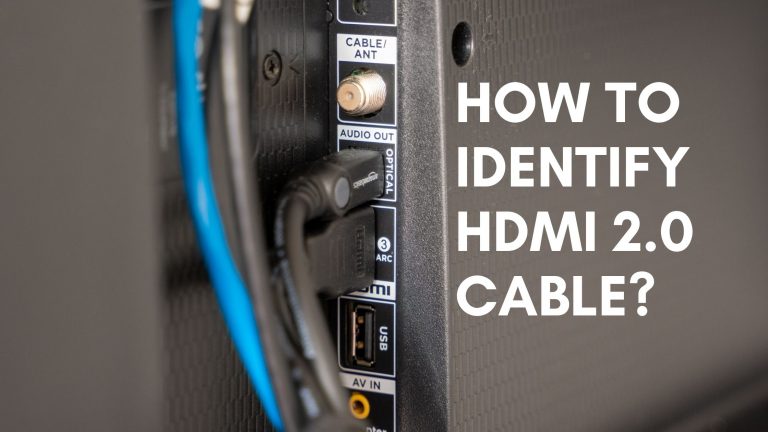
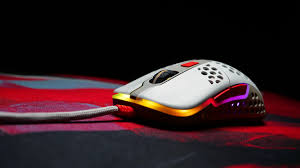

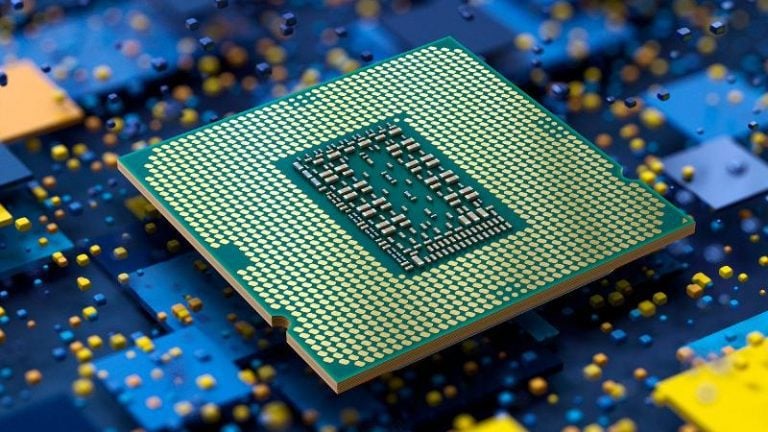

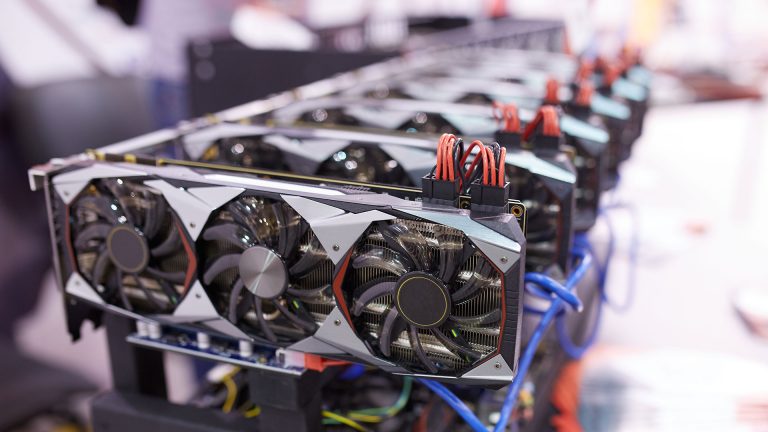
One Comment